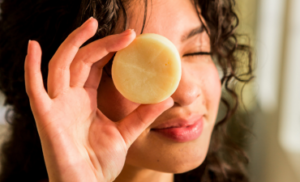Shampoo bars are becoming increasingly popular as people seek eco-friendly alternatives to traditional liquid shampoos. But what are the effects of shampoo bars on your hair and the environment? In this article, we’ll explore how shampoo bars work, their benefits, and any potential drawbacks.
What Are Shampoo Bars?
Shampoo bars are solid versions of liquid shampoo. They are typically made with natural ingredients and come in a variety of formulations to suit different hair types. Unlike liquid shampoos, they do not require plastic packaging, making them an environmentally friendly choice.

How Do Shampoo Bars Work?
Shampoo bars function similarly to liquid shampoos. You wet your hair and the bar, then rub the bar directly onto your scalp or between your hands to create a lather. The ingredients in the bar cleanse your hair by removing dirt, oil, and product buildup.
Benefits of Shampoo Bars
Eco-Friendly
One of the most significant benefits of shampoo bars is their minimal environmental impact. They typically come in biodegradable packaging or no packaging at all, reducing plastic waste significantly.
Travel-Friendly
Shampoo bars are compact and solid, making them an ideal travel companion. There’s no risk of spills, and they are easy to pack in carry-on luggage without worrying about liquid restrictions.
Cost-Effective
Although shampoo bars might seem more expensive upfront, they often last longer than liquid shampoos. A single bar can replace several bottles of shampoo, providing more washes per dollar spent.
Natural Ingredients
Many shampoo bars are made with natural ingredients, free from harsh chemicals like sulfates and parabens. This can be beneficial for those with sensitive scalps or allergies to synthetic ingredients.
Effects of Shampoo Bars on Hair
Healthier Hair
Shampoo bars can lead to healthier hair by nourishing the scalp and hair with natural ingredients. They can help maintain the hair’s natural oils, reducing dryness and breakage.
Adjusting Period
When switching from liquid shampoo to a shampoo bar, some users experience an adjustment period. During this time, the hair might feel greasy or waxy as it adapts to the absence of synthetic ingredients.
Hair Type Suitability
It’s important to choose a shampoo bar suited to your hair type. Some bars are formulated specifically for dry, oily, or color-treated hair. Using the right bar can enhance the positive effects on your hair.
Potential Drawbacks
Hard Water Challenges
In areas with hard water, shampoo bars might not lather as well, leading to a residue buildup on the hair. Using a vinegar rinse can help mitigate this issue.
Storage Issues
Proper storage is crucial for shampoo bars. They need to be kept dry between uses to prevent them from becoming mushy or dissolving prematurely.
Conclusion
Shampoo bars offer numerous benefits, from being environmentally friendly to promoting healthier hair. While there might be an adjustment period and a need for proper storage, the advantages make them a worthy alternative to traditional liquid shampoos.
